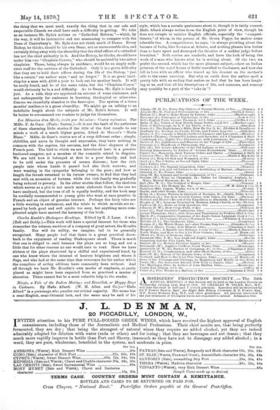the thing that we most need, exactly the thing that
in our safe and I style, which has a certain quaintness about it, though it is fairly correct. Haflz Allard always writes from the English point of view, though he does not scruple to satirize English officials, especially the " competi- tioners," of whom, in the person of Mr. Green Poppy, he makes some tolerable fun. A compotitioner, he says, "is always prowling about the bazaars of India, like Socrates at Athens, and nothing pleases him better than to have upset and destroyed the theories of a sadder judge before breakfast." Both stories are readable, and have the look of being the work of a man who knows what he is writing about. Of the two, we prefer the second, which has the more pleasant subject,—how an Indian princess of the royal house of Delhi travelled to Cashmere, and how she fell in love with an officer who traced up his descent on the mother's side to the same ancestry. But why on earth does the author spoil a pretty tale with an ending that makes us feel that ho has boon laugh- ing at us, and that all his descriptions of life, and manners, and scenery may possibly be a part of the "take-in "?






























 Previous page
Previous page